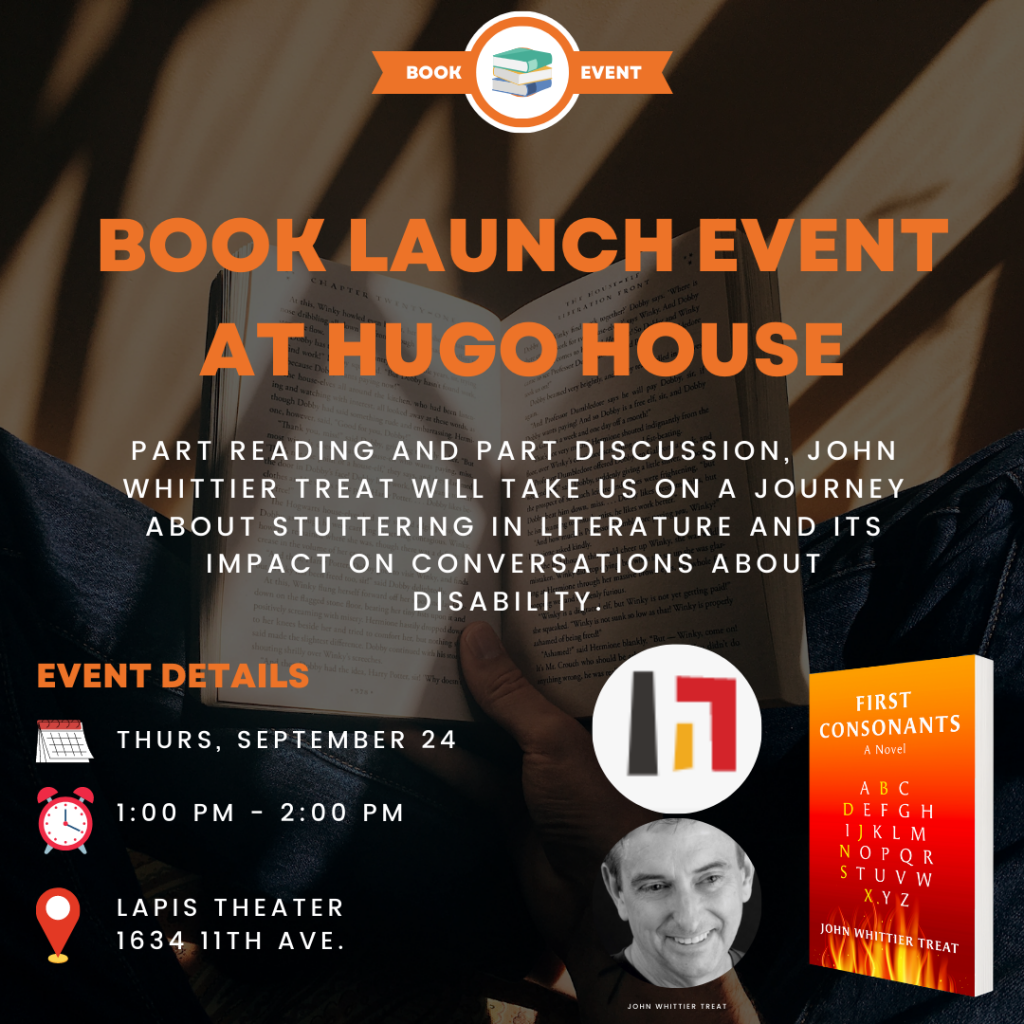1.
On your birds: You write about birds because they’re out the window. That’s fine. You have to spend a lot of time staring out the window to be a writer, and what moves when you’re staring out the window? In most of the US, birds. I’d just be careful about what your birds do and are, though. If they are symbols of freedom, shoot those clay pigeons down. Similarly, if your birds are people (if you’re writing in an urban area), be careful about what you pretend you know. These people who move through the park, just because they look familiar, that doesn’t mean you know their hope and peril; they are just as mysterious as the birds.
2.
I’m often attracted to the idea of writing something with a thesis — an essay that accomplishes some particular idea about the ghost speaker in lyric poems, let’s say. This isn’t completely far-fetched; I used to write such essays, back in college. But when I was in college I wasn’t an artist. And for me to be an artist, I seem to have needed to dispose with the thesis.
Now, I cannot figure things out. The pleasure of balancing the equation doesn’t come; instead, I line up my lens on one side and wait for whatever it is, an eye or a planet (or middle-distance, a doe with fawns) to come into view. What comes isn’t what’s called. There is no answer to the question.
I fight with my inability to figure things out when I think about how I could do some “research” on something and “know” something and I think how socially responsible this sounds, to have figured out that thing. But I’m not expert at that figuring. What I am expert at is paying attention and falling in love.
Thus, this “essay,” with its little observations and its lack of overview. There’s no gospel here, just a few things I’ve been thinking about.
3.
In graduate school, whenever anything in someone’s personal life went wrong, we would use the phrase “grist for the mill.” True, but let me point out that your concern as a writer is building the mill, not collecting grist. The grist will come. No one can help falling in love (with something, if only an idea) and no one can help enduring the deaths of others: these totally ordinary sufferings are enough. I would add that you should move from where you were born for at least a year, after which you can go right back. That’s all the grist you need.
4.
On craft: Craft is accomplished mastery. When you have thoroughly explored an element of your form until you can make choices about it instinctively, you have made it craft. Craft is valuable; in fact, an artist’s progress (troublesome word) may be viewed as a continually widening sphere of craft. But craft is not enough because there is no risk in craft. You must constantly be trying to do something that is uncertain, that might not work.
5.
Do you need to be a good person to make good art? No, I don’t think so. But you need to be honest, at least with yourself. If you cease to tell yourself the truth (which is to say, cease to change), your art is in trouble.
Could you lie to everyone else? I suppose so. But that eats into you after a while.
For me, the truth-telling comes from the work. It knows before I do. I have to listen, though.
6.
Looking closely is good. Knowing the names of things is nice, but I fear that many writers are tempted by their habits into pillaging specialist vocabulary without actually backing that up with field study. You can ransack a bunch of plant names, but what good is that if you don’t know whether you can eat those plants and, if you did, how they would taste? So I recommend knowing something.
Similarly, it’s good to hopelessly love something. (But do see above re: grist for the mill.) If you can’t do it, whatever it is, well and good, try hard at it and enjoy the failure. You’re a gifted writer, so unless you go outside writing, you will not know failure in the spectacular, humbling way that you must. Now, I am not saying you should take up fencing for a year, laugh at yourself, and make off with the dirt. I am saying you should be a bad cellist for a lifetime, or go to bike mechanic school, or live with your own crooked furniture. Learn something well enough to be tremblingly aware of what you cannot do. Let it break your heart.
7.
It’s hard to remain a poet. There are practical reasons for this. But there is also the well-documented tendency for the fire of linguistic invention to burn out — and then you are just writing mannered prose. I don’t have an answer for this one. I am on my guard against it, though. I try to keep writing things I don’t understand — and I mean writing, not merely compiling. Lots of people are pirating and compiling now, including me, and I love it and think you can learn plenty from it (perhaps more than you learn reworking your own material), but if you aren’t also writing from scratch (even if you hate and throw out every word you write), you are letting a vital organ atrophy.
8.
What does it mean to be an artist? More all the time. I’m thinking just now of dancers (I’m a dance critic), who seem to age apart from other people, further into themselves, so that by their mid-thirties they are sui generis; you’d know them from how they turn their heads. Dancers wear this on the outside, but it is true for any artist, I believe. This is a beauty and a danger — the danger being that you lose your sense of what life is like for other people.
But of course everyone suffers that danger, not just artists, because everyone’s work changes everyone’s life — doctors, farmers, scientists all age apart, just as artists do. . .
What I’m trying to get at here is that an artist’s life pulls two ways. On one hand, when you’re writing, you can’t worry about what your life consists of, and you can’t fake it. On the other, you need to be aware that your life makes your writing. If you’re not brave in life, you may lose the ability to be brave in writing; if you’re not meeting people unlike yourself in life, you may never know how to talk to them in writing. So you are grounding yourself and reaching at the same time — a very tricky balance.
I want to say this in a way that gives permission and urges exploration. Whoever you are, you represent many groups of people that could use an art that speaks to and from them. But — and — you need to keep moving; you need to keep pushing towards the edge, towards what you don’t know. In life as in writing, there is craft and there is art.
9.
The longer I work on this, the more I’ll change about it.





